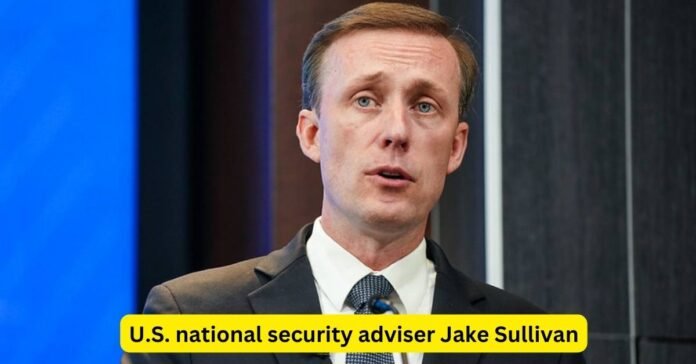Introduction
The recent Taiwan elections, held on January 13, 2024, were notable not only for their historic nature but also for the collaborative efforts between the United States and China to ensure stability in the region. U.S. National Security Adviser Jake Sullivan shed light on the behind-the-scenes developments during a speech to the Council on Foreign Relations in Washington. This article delves into the key points highlighted by Sullivan, offering insights into the intricacies of U.S.-China relations and their impact on Taiwan.
Diplomatic Maneuvers: Liu Jianchao’s Visit
Liu Jianchao, a seasoned Chinese diplomat, visited Washington in mid-January, just days before the crucial Taiwan elections. Analysts speculated on the purpose of his visit — whether it was a warning about potential consequences or an attempt to ease tensions and prevent miscalculations. Sullivan’s revelations provide a nuanced perspective on the diplomatic maneuvers that unfolded during this critical period.
Mitigating Cross-Strait Tensions
Sullivan emphasized the collaborative efforts between Washington, Beijing, and Taipei to mitigate miscommunication and misperception surrounding their respective intentions. The result was a historic election in Taiwan without major cross-strait incidents. This outcome defied earlier expectations of increased tension, especially following Nancy Pelosi’s visit to Taiwan in August 2022. However, Sullivan cautioned that this positive outcome doesn’t guarantee future trends, highlighting the need for continued diplomacy and deterrence.
Assessing China’s Approach: Liu Jianchao’s Position
Liu Jianchao, head of the Chinese Communist Party’s international liaison department, played a crucial role during this period. Sullivan’s insights into Liu’s address to the Council on Foreign Relations in New York and his subsequent meeting with U.S. Principal Deputy National Security Adviser Jon Finer shed light on China’s stance. Liu reiterated Beijing’s standard talking points on Taiwan being a core interest and a red line but refrained from criticizing the U.S. Sullivan emphasized the importance of maintaining open lines of communication amid the U.S.’s commitment to neutrality on Taiwan polls.
U.S. Policy on Taiwan: A Constant Amid Change
Sullivan clarified that the U.S. policy on Taiwan remained constant — neutral before, during, and after the election. The adherence to the “One China” policy, recognizing the Chinese position while not taking a stance on sovereignty, remained a foundational aspect of U.S. strategy. This stance reflects a careful diplomatic approach to maintaining stability in the region.
Insights from the U.S.-China Summit
Reflecting on the November 2023 summit between President Biden and President Xi at the Filoli Estate in California, Sullivan underscored the importance of leader-to-leader conversations in effective U.S.-China policy stewardship. The summit laid the groundwork for understanding the necessity of such dialogues and set the tone for future engagements.
Future U.S.-China Relations
Sullivan’s recent meeting with China’s top diplomat, Wang Yi, in Bangkok indicates ongoing efforts to sustain communication. The agreement to arrange a phone call between Biden and Xi in the coming months signals a commitment to high-level discussions. Sullivan outlined the Biden administration’s approach to U.S.-China relations, emphasizing the avoidance of recreating earlier mechanisms but expressing the value of working-level consultations in carefully chosen areas.
Beyond Diplomacy: Collaborative Initiatives
The establishment of a joint counter-narcotics working group in Beijing marks a collaborative effort between the U.S. and China. Sullivan hinted at further crisis communication mechanisms to reduce conflict risks and expressed readiness for collaboration on climate, health security, global macroeconomic stability, and emerging challenges like the risks posed by artificial intelligence.
Conclusion
In conclusion, Sullivan’s insights provide a comprehensive understanding of the intricate diplomatic maneuvers surrounding the Taiwan elections and the broader dynamics of U.S.-China relations. The collaborative efforts to ensure stability in the region, coupled with the commitment to high-level dialogues, underscore the nuanced approach the Biden administration is taking. As the geopolitical landscape continues to evolve, continued diplomacy and collaboration remain crucial in navigating the complexities of U.S.-China-Taiwan relations.
